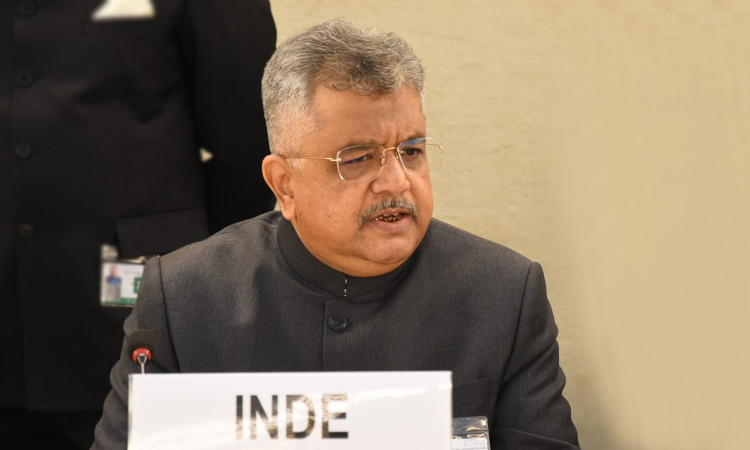At United Nations Event, Solicitor General Defends CAA, UAPA; Says Human Rights Defenders Must Follow Law Of The Land
LIVELAW NEWS NETWORK
12 Nov 2022 10:27 AM IST

Next Story
12 Nov 2022 10:27 AM IST
Leading the official Indian delegation to the Human Rights Council (HRC) in Geneva on Thursday, the Solicitor General of India, Tushar Mehta appreciated the role of human rights defenders, civil society members, journalists, and activists, however, he did add that their actions should be in conformity with the law of the land. "India has always condemned instances...
